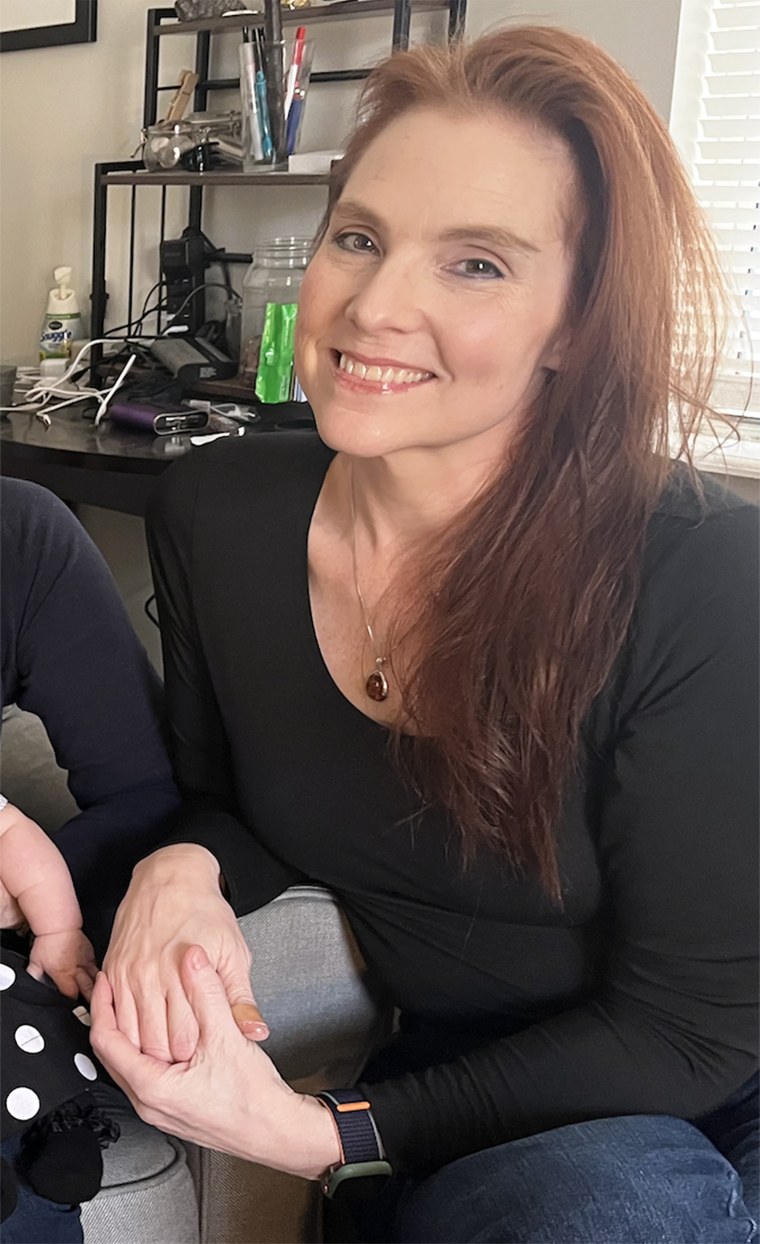After trying to lose weight with “every known diet” and two bariatric surgeries that didn’t work long-term, Holly Figueroa O’Reilly says she felt trapped in her body.
Overweight all her life, she at one point reached 300 pounds. Then, when the weight came down for a while, a family medical crisis meant she couldn’t work outside the home. So in 2022, she started a home bakery and chocolate shop.
“It’s a lot of eating and tasting, and it’s not great when you’re trying to lose weight,” O’Reilly, 52, who lives in Seattle, tells TODAY.com.
Her weight crept back up to 250 pounds. But today, she weighs 145.

When people ask her how she did it, O’Reilly tells them she lifts heavy weights and eats a high-protein diet, but what really made the difference was Ozempic, the Type 2 diabetes drug that reduces appetite as a side effect.
“Before I started taking Ozempic, my brain was constantly thinking about food: When is my next meal and what am I going to eat?” O’Reilly says, describing the phenomenon known as food noise.
“It’s like your brain is always yelling at you, ‘Food, food, food,’ and my brain does not do that anymore.”
Concerned about diabetes
As a child, O’Reilly was always bigger than other kids since she was in preschool. She was especially heavy in middle and high school.
She says her family was poor, so meat was scarce, and cheap processed foods — like crackers and canned soups — helped fill the gap.
“There were four kids, so whatever you could grab first, you ate,” she recalls.
O’Reilly’s grandfather weighed about 400 pounds when he died from complications of Type 2 diabetes. Her father later developed Type 2 diabetes as well. She didn’t want it to happen to her, but her weight kept creeping up after she gave birth to her first child when she was 23.

When she ended up weighing 300 pounds in her 30s, O’Reilly had her first bariatric surgery: a gastric band in 2006, which helped her get down to about 135 pounds for a while.
But a lot of scar tissue formed around it and doctors removed it in 2012, performing a gastric sleeve at the same time — her second bariatric surgery.
That didn’t help for long either. O’Reilly lost 40 pounds, but gained back all of it “pretty fast,” she recalls. From then on, she tried to manage her weight with diet.

Family crisis leads to weight gain
In 2021, her husband was diagnosed with leukemia and almost died. It began a long journey of visits to hospitals, doctors and clinics.
“There was no way to cook. There was no time, nor did I have the energy to make a meal,” O’Reilly recalls.
“I just ate cafeteria food for months, maybe a year, and it wasn’t great. It wasn’t good food. I wasn’t getting the amount of exercise that I had gotten before. I just started gaining weight and I didn’t care.”
Then, there was the chocolate shop. O’Reilly needed to stay home to take care of her husband, so she started Marcenet Mercantile, a home-based sweets business. Tasting the products and eating the “mistakes” comes with the territory of being a chocolatier, she says. O’Reilly was back at 250 pounds.
Her doctor told her she was “significantly overweight” and had an elevated A1C — a measure of average blood sugar levels over the past three months — which was trending the wrong way. Concerned she'd be prediabetic at her next visit, her health care provider prescribed Ozempic.
The medication helps patients manage blood sugar, but it also has a famous side effect: weight loss. Semaglutide, the active ingredient in Ozempic and Wegovy, mimics a hormone known as GLP-1, which the body releases into the intestine when people eat food, as TODAY.com previously reported.
People have reduced appetite, and when they do eat, they feel full sooner.
O’Reilly began taking the medication in the spring of 2023 and lost 105 pounds in less than a year. Her A1C has come down and she’s now at her goal weight of 145 pounds.

“(Ozempic) allowed me some space to develop a healthier relationship with food because I don’t ever remember a time when I wasn’t hungry all the time,” she says.
“I’ve just really changed how I look at food as a form of sustenance.”
She estimates she now eats a quarter of what she was consuming before, to the point where she’s careful about scheduling time to eat and making sure she gets enough protein.
The most common side effects of Ozempic include nausea, diarrhea, vomiting, stomach pain and constipation, according to the manufacturer. Some patients can't tolerate the side effects at all and stop taking the drug, NBC News reported.
O’Reilly says she experienced nausea and some diarrhea at first, which went away after about four weeks. She’s not had any other side effects since and says she’s not worried about any potential unknown problems down the road.
“I’m way more worried about weighing 250 or 300 pounds for long periods of time — I know what the side effects are from that,” she says.

Since reaching her goal weight, O’Reilly has been cutting down on her use of Ozempic — self-injecting it every other week rather than weekly — to see if she might not need it anymore. So far, she doesn’t notice a difference, she says.
A 2022 study found people gain back most of the weight they lost a year after stopping semaglutide.
Doctors caution GLP-1 medications are designed for chronic long-term treatment and are generally not to be used intermittently.
O’Reilly says as long as her insurance continues covering Ozempic, she’ll continue to take it if she needs it.
“It just completely transformed my body and the way that I conduct my life,” she notes.
